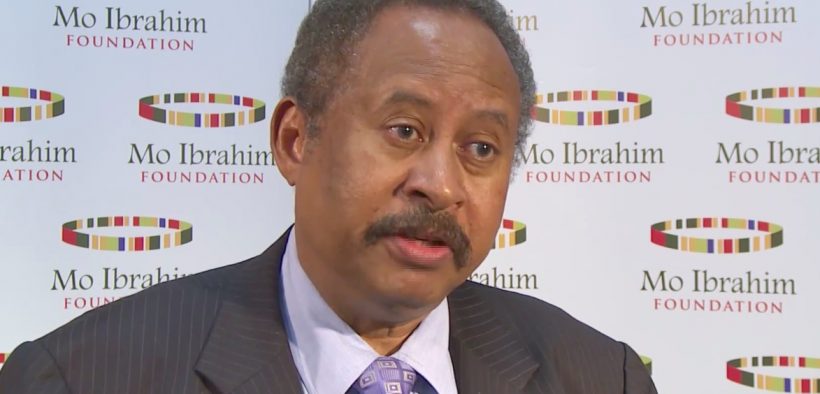Sudan Announces Cabinet Post Revolution, Includes First Female Foreign Minister

While many challenges lie ahead for Sudan’s new government, 18 cabinet members have already been named to serve out the coming three-year transitional period.
The beginnings of a new Sudanese cabinet – the first since the toppling of the 30-year reign of former Sudanese President Omar Al-Bashir earlier this year – was announced this week by newly appointed Sudanese Prime Minister Abdalla Hamdok.
The cabinet will govern for a three-year transitional period to be followed by elections, per terms agreed to last month under a power-sharing deal between the Sudanese military and civilian opposition forces.
Hamdok, who was sworn in as Sudan’s new prime minister on August 21, said earlier this week that he would make sure that the new cabinet includes technocratic members chosen for their competence, and who could help meet the serious challenges ahead for Sudan as it transitions away from Bashir’s authoritarian rule.
While the two cabinet members are yet to be announced, Hamdok reportedly approved 18 members so far, including four females and the first female foreign minister, Asmaa Abdallah.
Previously Hamdok stated that he wanted to form a cabinet that represents all Sudanese provinces and that a “gender balance” would be maintained.
According to Reuters, the cabinet also includes Ibrahim Elbadawi, a former World Bank economist who will serve as finance minister, and Madani Abbas Madani, a leader of the civilian coalition that negotiated the transition deal with the military, as a minister of industry and trade.
General Jamal Omar, a member of the Transitional Military Council that took over after Bashir was ousted will serve as defense minister.
Challenges Ahead for Sudan
One of the main challenges facing the new government is establishing and keeping peace in a country with numerous regions affected by rebel groups opposed to Bashir’s rule.
According to Al Jazeera, four rebel groups from marginalized areas such as Darfur reportedly said they will be “negotiating with transitional authorities with a unified vision,” though no further explanation was offered.
Getting Sudan off the United States’ list of countries that sponsor terrorism will be another priority – Hamdok called on the U.S. to make such a move on Tuesday. For Hamdok, the removal is vital as it paves the way for the revival of a battered economy.
In late 2017, the U.S. lifted a series of economic sanctions imposed on Sudan, but kept the country on the U.S.’ list of states sponsoring and harboring terrorism, a list that includes Iran, Syria and North Korea.
“We believe that the situation is suitable for removing Sudan from the terrorism list,” Hamdok said at a joint press conference with visiting German Foreign Minister Heiko Maas.
Hamdok added that Sudan has been “in negotiations with the Americans and [we] expect there would be progress on removing Sudan from the terrorism list.”
People-Imposed Change
Since last December Sudan has lived through mass demonstrations in protest of the soaring prices of goods and commodities as well as inflation. The protests pushed the Sudanese army to overthrow the authoritarian President Omar al-Bashir who had remained in power for more than three decades.
However, the country was in a state of chaos after the ousting of Bashir with no clear successor to lead the country. Sudan’s military assumed power, but June 3 the military opened fire and killed more than 100 protesters outside the military’s headquarters, intensifying worry that Sudan would become a military dictatorship.
In late June and early July, the military and civilian opposition forces worked on cementing a power-sharing agreement. On July 5, the Sudanese opposition Coalition of Freedom and Change said it had reached such an agreement with the transitional military council, sparking celebration of the “birthday of joy” throughout the country.
As Sudan moves forward with establishing a new government, Bashir sits on trial for corruption charges, though many wished for more serious charges to be levied against the former president.
“It is a relief to see him behind bars, but the current case against him is about money laundering and dealing in foreign currency, [but] we don’t think this is the only crime that al-Bashir committed,” said Amjed Farid, a spokesman for the key opposition party, the Sudanese Professionals Association.











